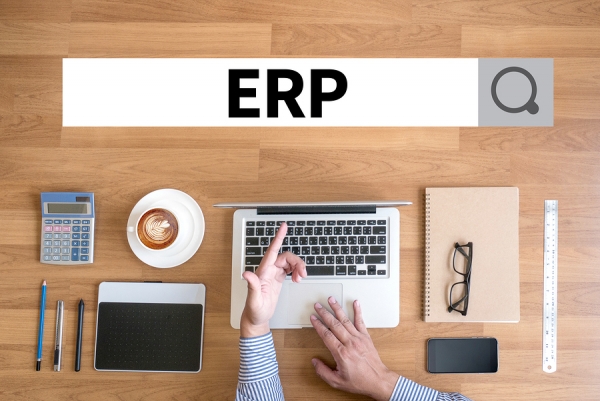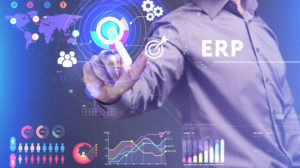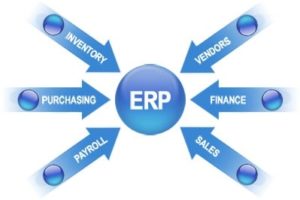One of the most useful benefits of ERP accounting software for the Cloud-based system is accessibility. Once you have an internet connection you can access the software from any time and anywhere. The benefits of real-time data easy access mean you can work anywhere and in your own time. With very reasonable pricing and low overhead costs, it’s a lot easier for businesses to have access to ERP Accounting software. ERP Softw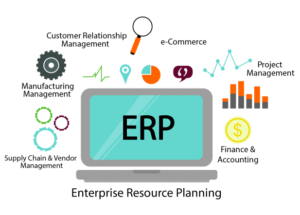 are Company comes in a subscription-based format that makes it more suitable for small and mid-sector companies. As compared to the conventional software, ERP installation is easy to handle and more comfortable in the pocket. The best part about the ERP accounting software is the fact that it can be according to your requirements. You have the freedom to choose the features you want, based on your industry and organization. If you have a manufacturing organization, you can optimize for an inventory control feature in your system. Some organizations also choose to use the payroll function for the convenience of having all the organizations data on one platform. In this manner, you can choose ideal features for yourself in the cloud-based ERP. Deciding which technology your business should and shouldn’t invest in is difficult, to say that the least. On the one hand, you want to be the one responsible, innovation and growth within the company. But you also don’t want to be the one of pull the trigger on a failed project company. So, is an ERP accounting Software investment worth the risk, To find out, you need to weigh the benefits of ERP accounting software, specifically how system advantages and disadvantages breakdown when compared against each other.
are Company comes in a subscription-based format that makes it more suitable for small and mid-sector companies. As compared to the conventional software, ERP installation is easy to handle and more comfortable in the pocket. The best part about the ERP accounting software is the fact that it can be according to your requirements. You have the freedom to choose the features you want, based on your industry and organization. If you have a manufacturing organization, you can optimize for an inventory control feature in your system. Some organizations also choose to use the payroll function for the convenience of having all the organizations data on one platform. In this manner, you can choose ideal features for yourself in the cloud-based ERP. Deciding which technology your business should and shouldn’t invest in is difficult, to say that the least. On the one hand, you want to be the one responsible, innovation and growth within the company. But you also don’t want to be the one of pull the trigger on a failed project company. So, is an ERP accounting Software investment worth the risk, To find out, you need to weigh the benefits of ERP accounting software, specifically how system advantages and disadvantages breakdown when compared against each other.
Difference between ERP and Accounting Software
ERP software solution can have all the features plus more. It’s a resource management system that the aside from monitoring the business’ financials, also tracks the following tangible, intangible assets, human resources, and materials. Intangible parameters include working hours, product life cycles, key performance indicators, and customer relationship management. These are not financials per se, but the impact on the company’s ERP accounting software hence, they are essential to your accounting. The term is used to the strictly to refer to the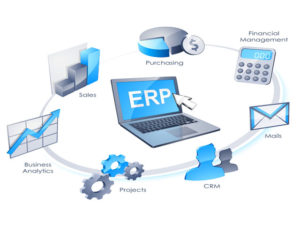 financial aspect of your business operations. These include accounts receivable, accounts payable, payroll, and trial balances of the ERP accounting software. Many vendors bundle ERP accounting software with modules for relevant business activities like billing, sales order, purchase order, general ledger, timesheet, expense, and electronic payment. So, is an ERP accounting Software investment worth the risk, To find out, you need to weigh the benefits of ERP accounting software, specifically how ERP system advantages and disadvantages breakdown when compared against each other. Most products today are offered with ERP accounting software as an entry-level package. As your business grows, so does your requirement for automating more complex data recording and management reporting processes. You can add activity-specific modules; thereby, transforming yours into an ERP. For example, a popular ERP accounting software suite offers financial management, planning, and budgeting features as its basic package. But the same package can be integrated with the other business operations such as project and supply chain management, reporting and analysis, and human resources management system.
financial aspect of your business operations. These include accounts receivable, accounts payable, payroll, and trial balances of the ERP accounting software. Many vendors bundle ERP accounting software with modules for relevant business activities like billing, sales order, purchase order, general ledger, timesheet, expense, and electronic payment. So, is an ERP accounting Software investment worth the risk, To find out, you need to weigh the benefits of ERP accounting software, specifically how ERP system advantages and disadvantages breakdown when compared against each other. Most products today are offered with ERP accounting software as an entry-level package. As your business grows, so does your requirement for automating more complex data recording and management reporting processes. You can add activity-specific modules; thereby, transforming yours into an ERP. For example, a popular ERP accounting software suite offers financial management, planning, and budgeting features as its basic package. But the same package can be integrated with the other business operations such as project and supply chain management, reporting and analysis, and human resources management system.
